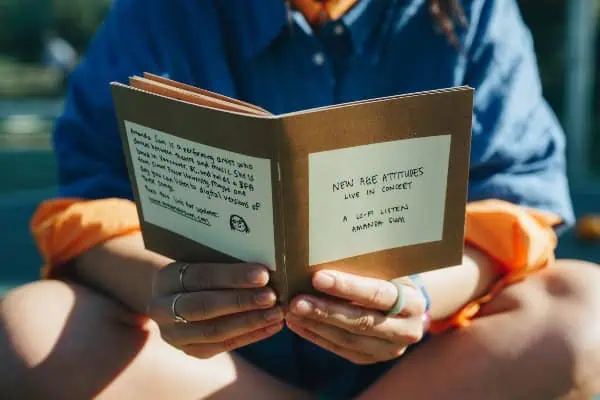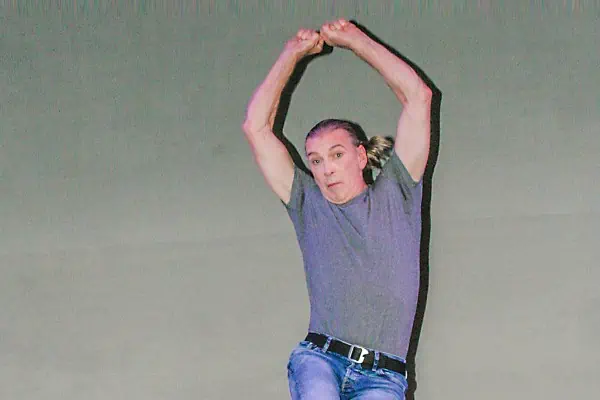Have you heard the one about the farmer’s daughter, the music teacher, the composer and the jazz singer? It’s not a joke. They’re all the same person: Karin Plato.
Although she has called Vancouver home since 1985, Plato grew up on a grain farm near the tiny (current population: 129) community of Alsask, Saskatchewan. That’s where she started composing music.
“There were three girls in the family – no boys – and my Dad had land kind of scattered about. I was designated to do the harrowing on some of the land when it was being prepared for seeding and after the season,” Plato explained.
“I was on my own with the secondary tractor, without a cab. I would wear a tank top and just get fried in the sun. I would have been 14, 15, and because there was no such thing as wearing earbuds and listening to music, I was making up my own music.”
While her father listened to Hank Snow or Johnny Cash on his headset in the main tractor, the music Plato was making up – and singing to herself – was not country and western.
It wasn’t blues, or classical, like the Mozart melodies her Mom loved to whistle, or the show tunes the whole family enjoyed. And it was definitely not jazz – the genre that would eventually become Plato’s bread and butter as a performer.
“There was no jazz on the prairies when I was growing up. Of course, I had the same pop music of my era that was on the radio at the time, but no jazz. There was definitely no jazz in the household.”
Instead, she would work up songs about nature, or things she observed – influenced by some of her contemporary favourites, such as Heart and April Wine.
“I’m grateful that there weren’t earbuds when I was on that tractor, because I probably would have been listening to other music instead of making up my own,” she said.
“That’s my first awareness of writing songs, and thinking, ‘Oh, I just wrote that. I just made that up.’ Because it takes a long time to do fields, you’re revising things and just entertaining yourself, or the occasional gopher that may pop up.”
Jazz did not enter Plato’s awareness until after she started studying classical piano and voice at university in Saskatoon.
“The first jazz I heard would have been instrumental jazz. And it didn’t make sense to me. I didn’t like it.”
Nevertheless, she was determined to keep an open mind about music and arts, and continued attending concerts and performances.
“It really wasn’t until I was in my 30s that I really got the switch on,” she said.
“Because that was the case for me, I find it very important as an educator to just gradually give a budding young musician who really doesn’t have the jazz bug yet, little tastes of some of those flavours that exist within the music.”
Jazz, she acknowledges, is not everyone’s cup of tea right away. It might take years of listening to appreciate it, and some people never become aficionados.
“But I do believe that for some people, it’s building up a taste for it – the whole idea of taking music and improvising within that form,” she said.
One of Plato’s biggest challenges was moving beyond the formalism of her classical music training.
“I didn’t understand why, if there were eighth-notes written, how the pianist or the vocalist knew to swing those notes. It didn’t make sense. I thought, ‘That’s not written there, how do they know to do that? What is that coming from?’
“Now I know it’s kind of a characteristic of lifting the music off the page. The notes written on the page are still the correct notes and everything, but they have a different feel. It was just something I hadn’t learned, even in my 20s.”
As a singer with hundreds of live gigs and several CDs to her credit, Plato looks up to such singing “heroes” as Sheila Jordan, who still performs internationally at the age of 89.
“She still has such joy and honesty in her music-making, that that’s an example for me. And she’s never had a huge voice. She has a very honest voice; so that’s an example of someone that’s older.”
Then, of course, there is the late Billie Holiday.
“It was always about the story, because she didn’t scat. She was an improvising singer, but it was just pared down to what her emotion was as she connected with the lyric, whether it was her own tune, or the standards that she always sang.”
As a music teacher, Plato has visited Whitehorse often. This week, along with her long-time quintet, she will return for a Jazz on the Wing concert at the Yukon Arts Centre on Sunday, October 29.
Other members of her ensemble are bass clarinetist James Danderfer and keyboardist Chris Gestrin, as well as Laurence Mollerup on acoustic bass and Joe Poole on drums.
In addition to several jazz standards, most of the music will be Plato’s own compositions, from an upcoming CD called This Could Be the One, which is scheduled for release next spring.
“It’s a little of everything. There are songs about nature. There are songs about life, and about loss. And it’s all specifically written for this quintet.”
The concert begins at 7:30 p.m. For tickets or further information, go to YukonArtsCentre.com.




